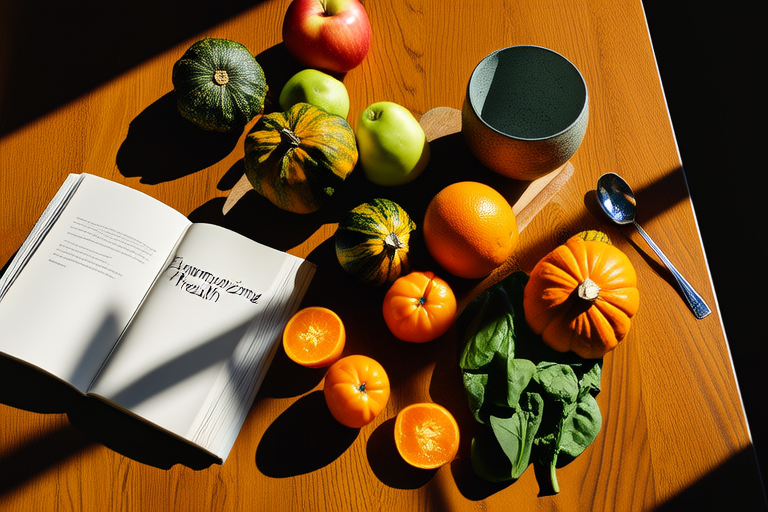Seasonal Secrets: Mastering Health Preservation Across the Four Seasons
Introduction: Embracing Nature’s Rhythms for Better Health
As the Earth rotates through its annual cycle, each season brings unique environmental changes that influence our physical, mental, and emotional well-being. Adapting our health practices to align with these seasonal shifts is not just a matter of tradition but a scientifically supported approach to maintaining balance in our lives. By understanding how temperature, daylight, and natural cycles affect our bodies, we can make informed lifestyle choices that enhance vitality and resilience year-round. This article explores practical strategies for staying healthy during spring, summer, autumn, and winter, offering tailored advice on diet, exercise, mental well-being, and preventive care.
Spring: Awakening and Renewal
Dietary Recommendations
Spring is a time of renewal, when fresh produce begins to reappear after the colder months. Focus on incorporating leafy greens like spinach, kale, and arugula into your meals, as they are rich in vitamins and minerals that support detoxification and energy renewal. Citrus fruits such as oranges and lemons remain abundant and provide a boost of vitamin C to strengthen the immune system. Light, plant-based meals are ideal during this season to help the body transition from the heavier foods of winter to a fresher, more vibrant diet.
Exercise Routines
With milder weather and longer daylight hours, spring is an excellent time to reintroduce outdoor activities. Walking, jogging, or cycling in nature can invigorate both the body and mind. Yoga or tai chi practiced outdoors can also help you reconnect with the environment while improving flexibility and reducing stress. Aim for at least 30 minutes of moderate exercise daily to take advantage of the revitalizing energy of spring.
Mental Well-Being Strategies
Spring often brings a sense of renewal, but it can also be a period of heightened stress due to changing schedules and increased responsibilities. Practice mindfulness techniques such as deep breathing or meditation to stay grounded. Spending time in green spaces has been shown to reduce anxiety and improve mood, so make it a priority to enjoy parks or gardens regularly.
Preventive Care
Spring allergies are common, so take steps to minimize exposure to pollen by keeping windows closed during peak times and wearing sunglasses outdoors. Visit your healthcare provider for allergy testing if symptoms persist. Additionally, schedule routine health check-ups to address any lingering issues from winter and prepare for the active months ahead.
Summer: Embracing Vitality and Balance
Dietary Recommendations
In the heat of summer, hydration becomes paramount. Drink plenty of water throughout the day and include hydrating foods like cucumbers, watermelon, and berries in your diet. Opt for lighter meals such as salads, smoothies, and grilled vegetables to avoid feeling sluggish. Avoid excessive caffeine and alcohol, which can contribute to dehydration.
Exercise Routines
Summer offers ample opportunities for outdoor fitness, but it’s important to exercise safely in the heat. Choose early morning or late evening workouts to avoid peak sun exposure. Swimming, paddleboarding, or beach volleyball are fun ways to stay active while cooling off. If you prefer indoor activities, consider high-intensity interval training (HIIT) sessions or dance classes to maintain energy levels.
Mental Well-Being Strategies
The long, sunny days of summer can lift spirits, but they may also disrupt sleep patterns. Establish a consistent bedtime routine to ensure restful nights. Engage in social activities or hobbies that bring joy, as connection and creativity are essential for mental wellness. Be mindful of overcommitting yourself; set boundaries to prevent burnout.
Preventive Care
Sun protection is crucial during summer. Use sunscreen with at least SPF 30, wear hats and sunglasses, and seek shade whenever possible to prevent sunburn and long-term skin damage. Stay vigilant about insect bites by using repellents and wearing protective clothing. Regularly inspect your skin for unusual moles or spots and consult a dermatologist if needed.
Autumn: Transitioning with Grace
Dietary Recommendations
As temperatures cool, focus on warming, nutrient-dense foods like soups, stews, and roasted root vegetables. Incorporate seasonal produce such as pumpkins, sweet potatoes, apples, and pears, which are packed with antioxidants and fiber. Spices like cinnamon, ginger, and turmeric not only add flavor but also support digestion and immunity as the body prepares for winter.
Exercise Routines
Fall is an ideal time to establish a balanced exercise regimen that combines strength training with cardiovascular workouts. As daylight decreases, consider joining a gym or trying indoor group classes to stay motivated. Hiking or brisk walking in crisp autumn air is another great way to enjoy the beauty of the season while staying fit.
Mental Well-Being Strategies
The shorter days of autumn can sometimes lead to feelings of melancholy or fatigue. Combat seasonal blues by maintaining a regular schedule and prioritizing self-care. Journaling, reading, or engaging in creative projects can provide comfort and fulfillment. Surround yourself with supportive friends and family to foster a sense of community.
Preventive Care
Autumn is flu season preparation time. Get vaccinated against influenza and ensure your immune system is strong by eating well, sleeping adequately, and managing stress. Pay attention to respiratory health by avoiding smoke and pollutants, and practice good hygiene habits like frequent handwashing to reduce the risk of illness.
Winter: Nurturing Resilience and Rest
Dietary Recommendations
During winter, prioritize hearty, warming meals that nourish the body. Include protein-rich foods like lean meats, beans, and lentils, along with whole grains and healthy fats such as avocados and nuts. Citrus fruits and cruciferous vegetables like broccoli and cauliflower continue to be beneficial for boosting immunity. Herbal teas like chamomile or peppermint can soothe and warm you during cold evenings.
Exercise Routines
Staying active in winter can be challenging, but consistency is key. Indoor exercises such as yoga, Pilates, or home workout videos can keep you moving without braving the cold. If you enjoy winter sports, skiing, snowshoeing, or ice skating are excellent options. Even short walks in daylight can boost your mood and energy levels.
Mental Well-Being Strategies
Winter often brings a slower pace of life, making it an opportune time for introspection and rest. Practice gratitude journaling or mindfulness meditation to cultivate positivity. Create cozy spaces at home where you can relax and recharge. Combat Seasonal Affective Disorder (SAD) by using light therapy lamps and spending time near windows to maximize natural light exposure.
Preventive Care
Protect yourself from colds and viruses by maintaining a clean living environment and avoiding close contact with sick individuals. Keep your home humidified to prevent dry skin and respiratory irritation. Schedule dental and medical appointments to address any concerns before they worsen. Prioritize restorative sleep to bolster overall health.
Conclusion: Harmonizing with Nature for Year-Round Wellness
Adapting our lifestyles to the rhythm of the seasons is a powerful way to nurture our health and well-being. From embracing the freshness of spring to finding warmth and resilience in winter, each season offers unique opportunities to thrive. By tailoring our diets, exercise routines, mental health strategies, and preventive care to the demands of the moment, we can build a foundation of vitality that supports us throughout the year. Aligning with nature’s cycles not only enhances physical health but also fosters a deeper connection to the world around us, reminding us that true wellness is a harmonious blend of body, mind, and environment.










